<< Previous | Displaying results 221-230 of 571 for "" | Next >>
Elizabeth and her family were in Paris when war began. As the Germans advanced in 1940, she and her mother fled southward. Elizabeth eventually reached Le Chambon, where she helped care for children sheltered by the town's pastor, Andre Trocme, and his wife. In late 1941 her father was among 1,000 intellectuals who received special US visas from President Franklin D. Roosevelt. The family escaped from France in 1942 on one of the last passenger ships to cross the Atlantic during the war.
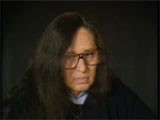
Elizabeth and her family were in Paris when war began. As the Germans advanced in 1940, she and her mother fled southward. Elizabeth eventually reached Le Chambon, where she helped care for children sheltered by the town's pastor, Andre Trocme, and his wife. In late 1941 her father was among 1,000 intellectuals who received special US visas from President Franklin D. Roosevelt. The family escaped from France in 1942 on one of the last passenger ships to cross the Atlantic during the war.
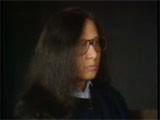
Elizabeth and her family were in Paris when war began. As the Germans advanced in 1940, she and her mother fled southward. Elizabeth eventually reached Le Chambon, where she helped care for children sheltered by the town's pastor, Andre Trocme, and his wife. In late 1941 her father was among 1,000 intellectuals who received special US visas from President Franklin D. Roosevelt. The family escaped from France in 1942 on one of the last passenger ships to cross the Atlantic during the war.
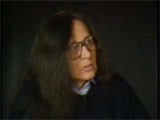
Describes Pastor Andre Trocme and his wife Magda Trocme
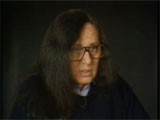
Emanuel's father was a cantor who became, soon after Emanuel was born, one of the chief cantors in Budapest. Germany occupied Hungary in March 1944. Systematic deportations of Jews from Hungary to the Auschwitz camp in occupied Poland began in May 1944. Emanuel and his mother were part of the train, organized by Zionist activist Rezso Kasztner, of over 1,600 Hungarian Jews who were to be sent to neutral countries as part of an exchange program. The train arrived at the Bergen-Belsen camp, where the…
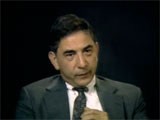
Naftali was the youngest of nine children born to devout Hasidic Jewish parents living in Kolbuszowa. The Germans invaded his town in September 1939 and began to round up Jews. Later, the Gestapo (German secret state police) shot Naftali's father. Naftali eventually made his way to the forest and lived there as a partisan before liberation by Soviet troops in mid-1944. He joined the Polish army, helping to liberate Krakow. He immigrated to the United States in 1947.
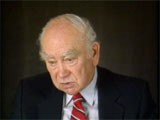
Naftali was the youngest of nine children born to devout Hasidic Jewish parents living in Kolbuszowa. The Germans invaded his town in September 1939 and began to round up Jews. Later, the Gestapo (German secret state police) shot Naftali's father. Naftali eventually made his way to the forest and lived there as a partisan before liberation by Soviet troops in mid-1944. He joined the Polish army, helping to liberate Krakow. He immigrated to the United States in 1947.
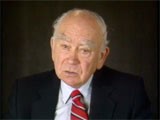
Irene and Rene were born Renate and Rene Guttmann. The family moved to Prague shortly after the twins' birth, where they were living when the Germans occupied Bohemia and Moravia in March 1939. A few months later, uniformed Germans arrested their father. Decades later, Irene and Rene learned that he was killed at the Auschwitz camp in December 1941. Irene, Rene, and their mother were deported to the Theresienstadt ghetto, and later to the Auschwitz camp. At Auschwitz, the twins were separated and subjected…
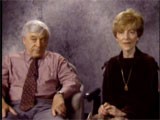
Irene and Rene were born Renate and Rene Guttmann. The family moved to Prague shortly after the twins' birth, where they were living when the Germans occupied Bohemia and Moravia in March 1939. A few months later, uniformed Germans arrested their father. Decades later, Irene and Rene learned that he was killed at the Auschwitz camp in December 1941. Irene, Rene, and their mother were deported to the Theresienstadt ghetto, and later to the Auschwitz camp. At Auschwitz, the twins were separated and subjected…
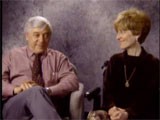
Irene and Rene were born Renate and Rene Guttmann. The family moved to Prague shortly after the twins' birth, where they were living when the Germans occupied Bohemia and Moravia in March 1939. A few months later, uniformed Germans arrested their father. Decades later, Irene and Rene learned that he was killed at the Auschwitz camp in December 1941. Irene, Rene, and their mother were deported to the Theresienstadt ghetto, and later to the Auschwitz camp. At Auschwitz, the twins were separated and subjected…
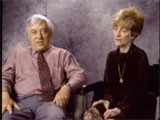
We would like to thank Crown Family Philanthropies, Abe and Ida Cooper Foundation, the Claims Conference, EVZ, and BMF for supporting the ongoing work to create content and resources for the Holocaust Encyclopedia. View the list of donor acknowledgement.